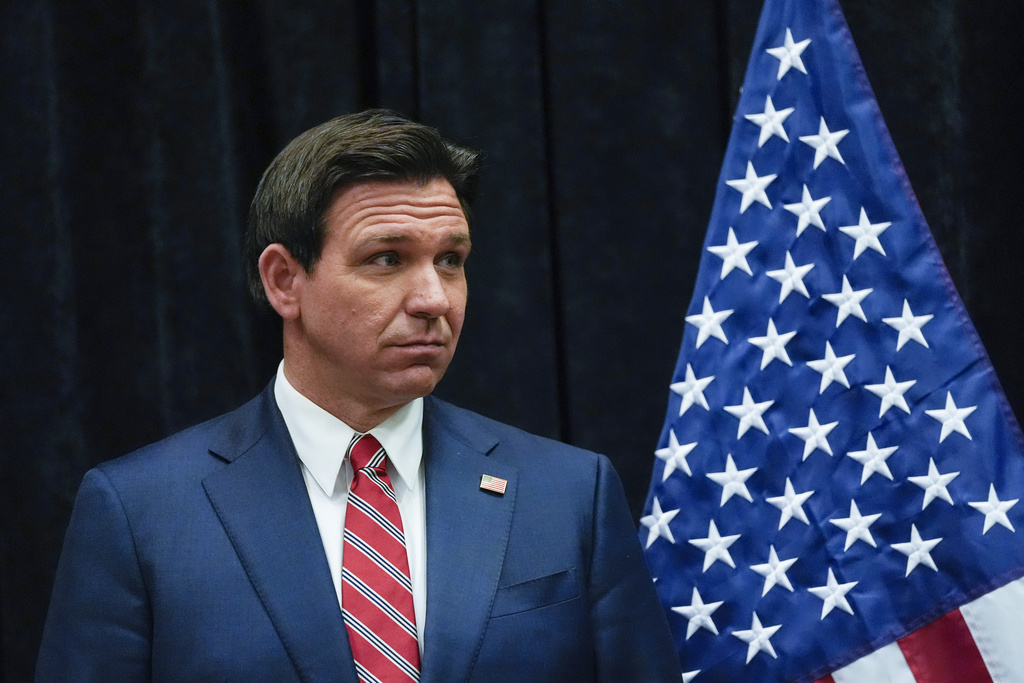The news media too often characterize legal decisions as sporting events. There’s always a winner and always a loser. It’s not that simple.
When U.S. District Judge Mark Walker decided not to issue an injunction preventing Florida and Gov. Ron DeSantis from “deactivating” Palestinian student organizations on the state’s campuses, headline writers were at the ready.
USA Today declared, “Judge Sides with DeSantis, Tosses UF, USF Pro-Palestinian Student Groups’ Lawsuit.” The Washington Examiner asserted, “DeSantis Wins Fight with Pro-Palestinian Student Groups’ Lawsuits.” Politico proclaimed, “Judge Delivers Major Blow to Free-Speech Lawsuits Brought by Pro-Palestinian Groups Against DeSantis.”
If you’re going to declare a winner, it’s important to know the score. The judge’s decision was actually a repudiation of DeSantis’ actions against student groups, which, in fairness, other news organizations, including the Associated Press, reported.
In sports terms, this was not a win or loss. It was a rain delay.
The case arose when DeSantis, in the wake of the Israel-Hamas conflict, maligned Palestinian student groups as being terroristic in nature and called for their banishment from campus. After a conversation with DeSantis, Chancellor Ray Rodriguez sent a memo to state universities advising that “the student chapters must be deactivated.”
Then nothing happened. The state did not follow through on its threats, although DeSantis in his campaign for president insisted that it had. Judge Walker dismissed the case because the state had not done what it had threatened to do. No student groups were banished or suffered any apparent consequences other than anxiety instilled by government threats. Case dismissed.
Far from being a victory for the state, the judge commiserated with the student groups, saying he couldn’t blame them “for feeling anxious about the fact that the Governor – arguably the most powerful man in Florida – has repeatedly disparaged … members as ‘terrorists.’”
Still, Walker wrote, fear of government action is not enough to justify an injunction. In a nutshell, Walker was saying, “No harm, no foul.”
Why did the state not pursue deactivation? In all likelihood, the state backed away because the governor had won political points with his stance and any later loss in a courtroom would have erased those gains.
In his opinion, Judge Walker commented on possible legal consequences for those who might try to ban these student groups, referring to the state’s board of trustees’ “aversion to possibly incurring personal liability.”
The odds against the state’s prevailing were significant. Everyone in America has a First Amendment right to assemble and speak freely, regardless of the topic. It’s only when speech becomes action involving material support for terrorism that anyone can be punished. There was no evidence of that occurring on Florida’s campuses.
Yet anyone looking at those “DeSantis wins” headlines could have concluded a judge upheld the governor’s stand against Palestinian student groups. That gives the governor a win when in fact his entire position was undercut by the court.
In his opinion, Judge Walker concluded that the state of Florida didn’t have the power to deactivate student groups and that the entire matter consisted of DeSantis and others “running their mouths.” You can’t get an injunction against hot air.
In the end, our protections of free speech and assembly led to Florida officials’ backing off from their threats. The real winner? This was a victory for the First Amendment and all who value its protections. Game over.
Ken Paulson is the director of the Free Speech Center at Middle Tennessee State University and a former editor-in-chief of USA Today.
The Free Speech Center newsletter offers a digest of First Amendment- and news media-related news every other week. Subscribe for free here: https://bit.ly/3kG9uiJ

